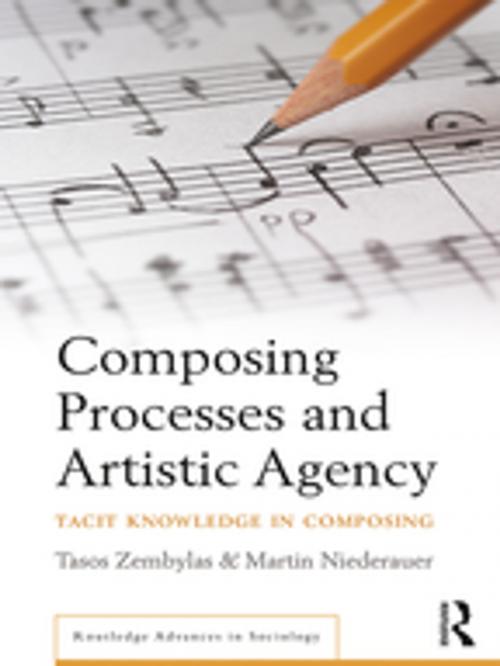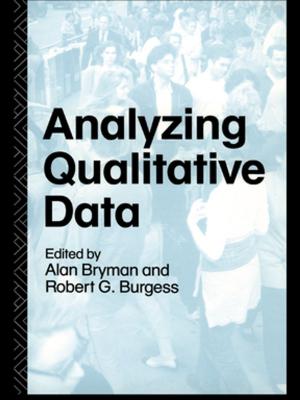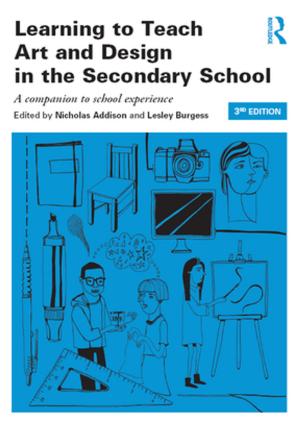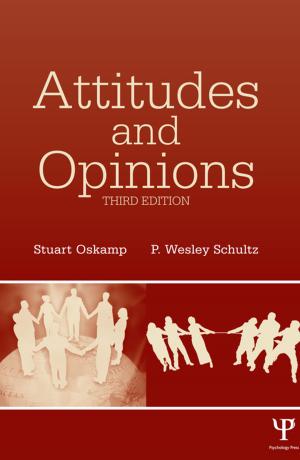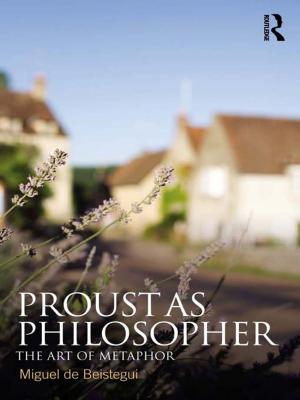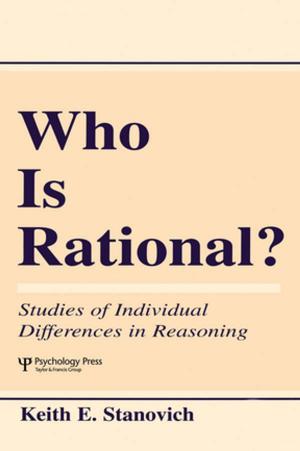Composing Processes and Artistic Agency
Tacit Knowledge in Composing
Nonfiction, Social & Cultural Studies, Social Science, Sociology| Author: | Tasos Zembylas, Martin Niederauer | ISBN: | 9781315443904 |
| Publisher: | Taylor and Francis | Publication: | July 31, 2017 |
| Imprint: | Routledge | Language: | English |
| Author: | Tasos Zembylas, Martin Niederauer |
| ISBN: | 9781315443904 |
| Publisher: | Taylor and Francis |
| Publication: | July 31, 2017 |
| Imprint: | Routledge |
| Language: | English |
This monograph carries out an in-depth investigation into compositional processes, shedding new light on the components and conditions that constitute artistic agency. Artistic agency relies on the interlocking of such activities that emerge from various propositional and non-propositional (experiential, corporeal, sensory) forms of knowledge - listening, feeling, imagining, trying out, reflecting, noting and correcting, which represents a small selection of the multifaceted composing activities. The book develops an understanding of artistic agency and mastery in its fundamentally social nature, through the important, though largely ignored output of creative compositional processes.
Using a mixture of case studies and theoretical frameworks, this book will appeal to sociologists, musicologists, creative studies scholars, and artists, particularly those who teach composition or research on this topic, as well as students of MA- and PhD-level.
This monograph carries out an in-depth investigation into compositional processes, shedding new light on the components and conditions that constitute artistic agency. Artistic agency relies on the interlocking of such activities that emerge from various propositional and non-propositional (experiential, corporeal, sensory) forms of knowledge - listening, feeling, imagining, trying out, reflecting, noting and correcting, which represents a small selection of the multifaceted composing activities. The book develops an understanding of artistic agency and mastery in its fundamentally social nature, through the important, though largely ignored output of creative compositional processes.
Using a mixture of case studies and theoretical frameworks, this book will appeal to sociologists, musicologists, creative studies scholars, and artists, particularly those who teach composition or research on this topic, as well as students of MA- and PhD-level.
